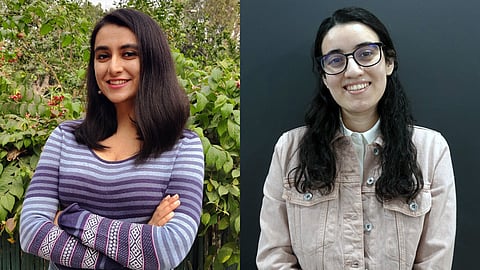
- News
- Columns
- Interviews
- Law Firms
- Apprentice Lawyer
- Legal Jobs
- हिंदी
- ಕನ್ನಡ

Two law students from India - Anupriya Dhonchak and Misbah Reshi - have bagged the prestigious Rhodes Scholarship to pursue post-graduate studies at Oxford University next year.
Anupriya Dhonchak is a final-year student of National Law University, Delhi. Presently, she is engaged as a fellow at SpicyIP.
Misbah Reshi, originally hailing from Kashmir, is a final year student of Campus Law Centre, Faculty of Law, University of Delhi. She is also a Philosophy Honors graduate from St. Stephen’s College, Delhi.
In this conversation with Bar & Bench, the duo give insight into what drove them to apply for the Scholarship, how the selection process played out amid the COVID-19 pandemic, and more.